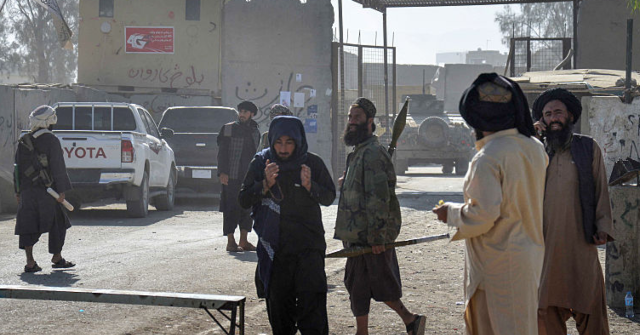Taliban Trade Minister Alhaj Nooruddin Azizi traveled to New Delhi on Wednesday in search of trade deals and investments, taking the relationship between the Islamic Emirate of Afghanistan and India another step forward.
To the surprise of many observers, India has become the Taliban junta’s best friend next to Russia and China. Russia is the only country to formally recognize Taliban rule over Afghanistan so far, but in October, India reopened the embassy in Kabul that it had shuttered during the Taliban conquest in 2021.
Indian Foreign Minister S Jaishankar said in October that India was “fully committed to the sovereignty, territorial integrity, and independence of Afghanistan,” and hoped for “closer cooperation” that would contribute to “regional stability.”
Azizi — a strategic pick for emissary because he is one of the few high-ranking officials in the junta who is not a formal member of the Taliban — flew into New Delhi on Wednesday for meetings focused on “expanding economic cooperation, facilitating trade relations, creating joint investment opportunities, and strengthening Afghanistan’s role in regional transit routes,” according to the Afghan trade ministry.
“Advancing bilateral trade and investment ties are the key focus of the visit,” said Indian foreign ministry spokesman Randhir Jaiswal.
Jaishankar said on Thursday he discussed “ways to strengthen our trade, connectivity, and people-to-people ties” with Azizi, and “reiterated India’s support for the development and welfare of the people of Afghanistan.”
Azizi attended the India International Trade Fair (IITF) on Wednesday where he met with the director of the India Trade Promotion Organization (ITPO). The trade fair included exhibits of Afghan products available to Indian traders.
As a landlocked nation, Afghanistan is particularly eager to gain access to ports and seaborne freight. India operates a port called Chabahar in Iran that is easily accessible by land from Afghanistan.
Chabahar is under U.S. sanctions against Iran, but the Trump administration granted a waiver from the sanctions last month so that India could operate from it. Last week, the administration extended that waiver by six months.
India’s growing partnership with Afghanistan is partly a result of tensions between Afghanistan and its neighbor Pakistan, India’s regional rival. Islamabad is furious with the Afghan Taliban for harboring terrorists dedicated to overthrowing the Pakistani government, especially Tehrik-e-Taliban, also known as the Pakistani Taliban.
The once-friendly relationship between the Taliban and Pakistan, which supported the Islamist extremist insurgency against the U.S.-backed elected government in Kabul after 2001, has deteriorated to the brink of all-out war. With the Pakistani border closed, the Taliban turned to India for its trading needs.
India, in turn, hopes to outmaneuver its other great rival China for influence in Afghanistan. Just as China seeks to bring Afghanistan into the China-Pakistan Economic Corridor (CPEC) project of its Belt and Road Initiative, so India wants to build a land bridge through Afghanistan and into Central Asia.
Read the full article here



